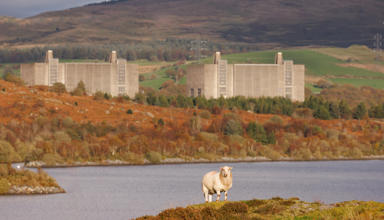The Welsh Government is currently consulting on its draft policy for petroleum extraction in Wales. The proposal is that it:
will not undertake any new petroleum licensing in Wales, or support applications for hydraulic fracturing petroleum licence consents.
With new petroleum licensing powers being devolved to Wales under the Wales Act 2017, the proposals mean applications for new petroleum licences or fracking licence consents will not be supported. The only exceptions to the Welsh Government’s position would be where the recovery of oil or gas is required for mine safety or scientific research purposes.
The consultation, open until 25 September, seeks views on the draft policy on petroleum extraction in Wales and on the evidence that has informed it.
What is petroleum?
Petroleum is defined in section 1 of the Petroleum Act 1998 as
any mineral oil or relative hydrocarbon and natural gas existing in its natural condition in strata; [this] does not include coal or bituminous shales or other stratified deposits from which oil can be extracted by destructive distillation.
Petroleum can be either conventional, where the gas and/or oil is trapped under pressure in underground reservoirs, or unconventional which refers to natural oil and gas trapped in deep underground rocks. Types of unconventional gas in Wales include shale gas, coal bed methane, abandoned mine methane, and coal mine methane.
Unconventional petroleum is harder to reach and extraction techniques are therefore more complex, requiring additional processes to free the petroleum from the ground. Shale gas for example is extracted from the rock using hydraulic fracturing techniques i.e. ‘fracking’. Our research paper on unconventional gas explores this in more detail.
What petroleum sources exist in Wales?
While Wales has a long history of coal extraction, there has been minimal petroleum development to date. The availability of data on the scale and location of petroleum reserves in Wales is limited although the British Geological Survey (BGS) undertook a Study of Potential Unconventional Gas Resource in Wales (PDF, 2.96MB) in 2013.
The BGS report identifies that petroleum in the form of coal bed methane (CBM) is present in coal seams in north-east and south Wales. While shale gas is less prevalent in Wales than CBM, there are a number of shale horizons which may have potential for exploitation.
What new powers are being devolved?
While powers around gas are generally reserved to the UK Parliament under the Wales Act 2017, there are exceptions that apply to petroleum, including the granting and regulating of licences to search for, bore for and extract petroleum.
From October 2018, the Welsh Ministers will take over responsibility from the UK Oil & Gas Authority (OGA) for licensing onshore petroleum, with the onshore area licence boundary also including inshore estuary waters.
In light of these new powers the Welsh Government’s proposed policy is that it will not undertake any new petroleum licensing in Wales, or support applications for hydraulic fracturing petroleum licence consents.
What about existing licences?
Whilst the proposed new policy would mean no new licences are issued, there are fourteen current Petroleum Exploration and Development Licences (PEDLs) in Wales, with the last licences awarded in 2008. A PEDL, while granting exclusive rights to search for, bore for, and extract petroleum within a specified area, is conditional and does not in itself provide authority to drill or commence any other operations without further approval. From October 2018, any existing Welsh licensee wishing to exercise their PEDL rights will be required to apply to the Welsh Ministers for the relevant consent or approval.
In the case of existing PEDLs, the Welsh Government states any application would be considered in light of its decarbonisation commitments and the application of Welsh Government planning and petroleum policies in accordance with the law.
Is fracking in Wales already banned?
While the Welsh Government’s consultation document relates to a range of petroleum sources, it is the extraction of shale gas through fracking, explained in more detail in this blog post, which regularly makes the headlines and has been debated by Assembly Members in Plenary.
As reported in the media, the Welsh Government has previously taken action through the planning system to stop fracking in Wales. In March 2016 the Welsh Government issued the Town and Country Planning (Notification) (Underground Coal Gasification) (Wales) Direction 2016 in parallel to a ‘Dear Chief Planning Officers’ (CPO) letter. This put in place a process by which any applications received by local planning authorities relating to the gasification of underground coal would be referred to the Welsh Ministers where local planning authorities were minded to approve them.
This block however did not apply to exploratory drilling and some applications such as in the Vale of Glamorgan and Wrexham, were given permission. It was also questioned whether this block on fracking was the right approach, with some arguing that it would be better to use gas from the UK rather than rely on imports.
Concerns were also raised that the Welsh Government could be open to legal challenge with some questioning whether this block was within the government’s powers at the time. The Wales Act 2017 means that it is now within the Welsh Government’s powers to ban fracking and other methods of petroleum extraction.
What evidence was used to inform the policy?
Alongside the consultation, the Welsh Government has published a number of research reports and studies which examine the potential positive and negative impacts of petroleum extraction in Wales. The Welsh Government has also considered the findings of these studies in the context of the Well-being of Future Generations (Wales) Act 2015 and the Environment (Wales) Act 2016 in order to determine:
whether a future domestic petroleum extraction industry, supplying homes and businesses in Wales, is compatible with the principles that underpin [the Acts].
Environmental impacts

Due to the limited scale of petroleum extraction developments in Wales to date, there is little evidence of the potential impact of the industry on the Welsh landscape and environment. However a report undertaken by the Geo-environmental Research Centre at Cardiff University (PDF, 2.87MB) identified a number of environmental risks, including:
- Using large quantities of water, potentially affecting available water for people and the environment;
- Risks to groundwater, through the escape of hydraulic fracturing fluids or substances dissolved from native rocks;
- Dissolved substances and naturally occurring materials from rocks that need to be disposed of properly;
- Emissions and management of wastes from drilling, hydraulic fracturing, flaring and other on-site operations;
- The release of methane, a greenhouse gas, and other pollutants to air; and
- Polluting water or the ground from operations on the surface.
Economic impacts
With new powers devolved to Wales questions have been raised as to what economic advantages petroleum extraction could bring. When considering the potential economic impacts, a report produced by Cardiff University (PDF, 420KB) concludes that the impacts are:
unlikely to be of the scale and nature to create any longer term transformative economic effects for the region.
Unsurprisingly, a number of energy firms take a different view on this. When providing evidence to the House of Commons Welsh Affairs Select Committee as part of its inquiry on Energy Generation in Wales, energy firm Coastal Oil and Gas told the Committee that there ‘is an enormous amount of gas in south Wales’. On the potential of a petroleum extraction industry across the UK they added that ‘tens of thousands of jobs would be created in a substantial shale-gas scenario’.
In addition to the potential economic benefits through the creation of employment opportunities, petroleum extraction is subject to taxation. While this will continue to be payable to the UK Government Treasury, those holding licences for petroleum extraction are also subject to paying rental rates and administration fees which from October 2018 will be payable to the Welsh Government.
Health impacts
The conclusions drawn from the evidence considered is that the potential risks to public health from exposure to the emissions associated with unconventional gas extraction could be low if the operations are properly run and regulated.
However Public Health Wales stress (PDF, 210KB) that it is important to recognise the gaps in the evidence base available and that more knowledge is needed.
Transport impacts
The evidence identifies (PDF, 2MB) that at a national scale the additional transport movements associated with petroleum extraction are unlikely to be significant, however further work would be needed to understand the impacts on local communities.
The evidence also suggests that the volume of traffic movements could potentially be greater for CBM extraction, which is more prevalent in Wales than other petroleum sources.
The Welsh Government’s view
The Welsh Government’s conclusion from the evidence is that the benefits of petroleum extraction are not great enough to outweigh its commitment to sustainably manage natural resources.
It concludes that there are ongoing environmental and health risks, partly due to a lack of specific evidence, and a limited economic benefit to Wales from supporting petroleum extraction.
What are the next steps?
Following the consultation exercise, the Welsh Government intends to make an announcement before the end of 2018 on its policy for future petroleum extraction. Should the draft policy of not allowing any new petroleum licensing in Wales be taken forward, the Welsh Government believes it:
will be taking a small, yet important step towards a decarbonised future in Wales.
Article by Francesca Howorth, National Assembly for Wales Research Service






